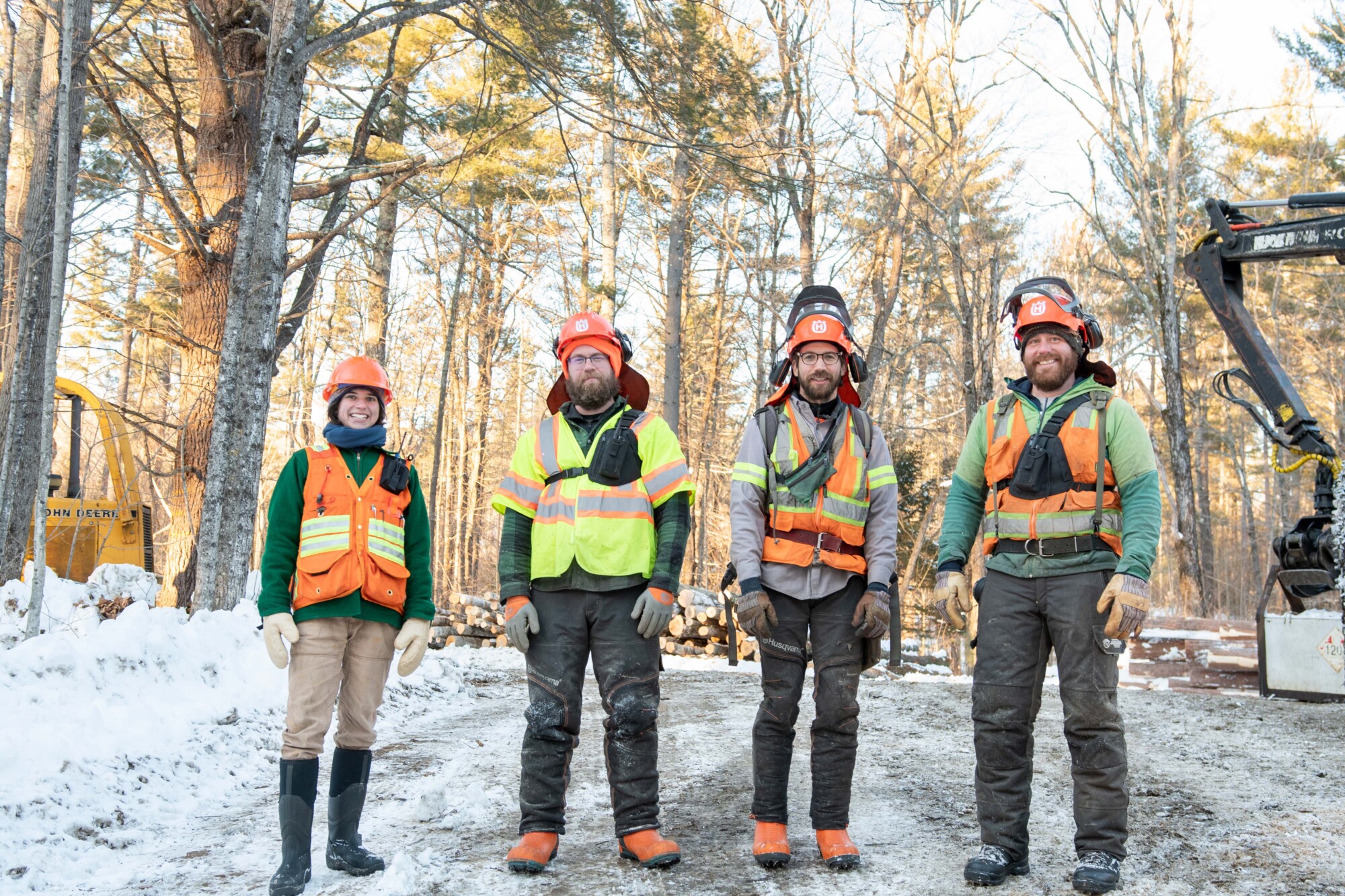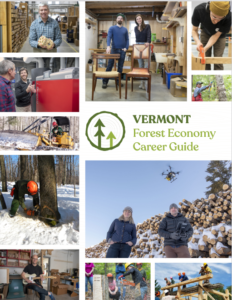Curious About a Career in the Forest Economy?
July 19, 2023

From logging to furniture-making, the new Vermont Forest Economy Career Guide details job descriptions, wage information, education requirements, and more.
Do you love to work outdoors? Enjoy making things with your hands? Love to drive big machines, or want to use technology to solve environmental problems? A career in Vermont’s forest economy could be a great fit for you!
The new Forest Economy Career Guide offers detailed information on projected job openings, wage information, education and training requirements, and what to expect on the job. From logging to furniture-making, to using drones to map forest inventory and manufacturing wood pellets for heat, there are good jobs to be had in Vermont’s forest economy.
Forest Health, Conservation and Consulting Careers
Individuals interested in forest health, conservation and consulting, for example, will find information on careers in forestry. Entry level jobs typically require a high school diploma, while professional foresters have at least two to four years of post-secondary education. The median annual salary in forestry is $63,750. Consulting forester Charlie Hancock gives advice to people interested in the field in this video.
Construction Careers
Construction, which has more than 3,000 projected job openings in Vermont according to Advance Vermont, provides a median hourly wage of $22.94 and generally requires three to twelve months of on-the-job training. The Guide notes that employers will look for attention to detail, familiarity with hand and power tools, basic math skills, and excellent communication.
Sawmill Careers
Family-owned sawmills in Vermont offer numerous jobs, from production to management to sales, many of which require a high school diploma and on the job training. Trever Allard, the second generation owner of Allard Lumber in Brattleboro, shares his advice on working at a sawmill here.
Woodworking Careers
Those interested in fine woodworking will find detailed information on everything from cabinet- to furniture-making, jobs that combine high levels of artistry with craftsmanship and have a starting hourly rate of $18 per hour. The owners of Towards Nightfall and the Vermont Woodworking School, Catherine Emil and Jared Williams share what they love most about careers in the woodshop here.
A diverse and dynamic field, these jobs play an important role in preserving the health and productivity of Vermont’s forests.
Click here to download The Vermont Forest Economy Career Guide!“The next generation of forest economy professionals will steward Vermont’s most valued natural resource for both economic and environmental benefit,” said Christine McGowan, forest program director at the Vermont Sustainable Jobs Fund. “As the current workforce ages and approaches retirement and new technologies and markets appear, there are opportunities for both employment and advancement in all areas of the industry.”
About the Vermont Forest Products Program at VSJF
Vermont’s forest economy contributes more than $2 billion in direct economic output and provides more than 13,000 jobs in forestry, logging, processing, specialty woodworking, construction, wood heating, maple production, and forest-based recreation. The Forest Products Program at the Vermont Sustainable Jobs Fund (VSJF) creates space for strong relationships and collaboration throughout the industry and promotes the development of new and existing markets for Vermont wood products. Committed to nurturing the sustainable development of Vermont’s economy, VSJF provides business assistance, network development, strategic planning, and value chain facilitation in agriculture and food system, forest products, waste management, renewable energy, and environmental technology sectors. Learn more at www.vsjf.org.





